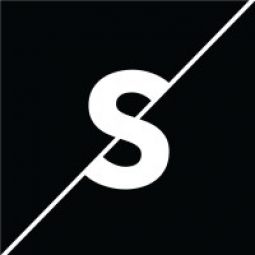Technology Category
- Functional Applications - Manufacturing Execution Systems (MES)
- Platform as a Service (PaaS) - Application Development Platforms
Applicable Industries
- Education
- Equipment & Machinery
Applicable Functions
- Logistics & Transportation
- Product Research & Development
Use Cases
- Additive Manufacturing
- Manufacturing Process Simulation
Services
- Training
About The Customer
Orkla is a leading manufacturer with a diverse portfolio that includes everything from jams and chocolate, to pizza and ready-to-eat meals. The company is committed to delivering delicious products while maintaining a focus on quality, innovation, and sustainable growth in their day-to-day manufacturing processes. Orkla is dedicated to finding new tools and solutions to increase productivity and implement sustainable ways of working throughout their manufacturing operations. The company operates in multiple countries including Norway, Latvia, Finland, and Denmark.
The Challenge
Orkla, a leading manufacturer of a diverse range of products including jams, chocolate, pizza, and ready-to-eat meals, was seeking ways to increase productivity and implement sustainable practices in their manufacturing operations. The company was dealing with the challenge of silent knowledge, which is the information and best practices that are kept in the heads of knowledgeable employees, instead of being recorded and evaluated in a standardized process. This was leading to inefficiencies and inconsistencies in their manufacturing processes. Additionally, Orkla was using a paper-based system for creating, editing, and distributing work instructions and SOPs on the shop floor, which was time-consuming and prone to errors.
The Solution
Orkla partnered with SwipeGuide to digitize their work instruction and SOP creation and distribution process. SwipeGuide's platform offered a minimalist design that simplified the content creation process for supervisors. The platform's drag-and-drop interface allowed content creators to create standardized content easily. With SwipeGuide, supervisors could walk the production line with a tablet, take a photo of a particular machine or component, and create a relevant instruction in minutes. Editing instructions and SOPs within the digital platform meant that corrections were published instantaneously, and improvements made to an instruction were instantly available to users. The platform also facilitated better training and knowledge management by providing digital work instructions and SOPs, reducing the need for in-person training support. New employees could scan a QR code to get the most up-to-date work instruction for the task at hand.
Operational Impact
Quantitative Benefit

Case Study missing?
Start adding your own!
Register with your work email and create a new case study profile for your business.
Related Case Studies.

Case Study
Smart Water Filtration Systems
Before working with Ayla Networks, Ozner was already using cloud connectivity to identify and solve water-filtration system malfunctions as well as to monitor filter cartridges for replacements.But, in June 2015, Ozner executives talked with Ayla about how the company might further improve its water systems with IoT technology. They liked what they heard from Ayla, but the executives needed to be sure that Ayla’s Agile IoT Platform provided the security and reliability Ozner required.

Case Study
IoT enabled Fleet Management with MindSphere
In view of growing competition, Gämmerler had a strong need to remain competitive via process optimization, reliability and gentle handling of printed products, even at highest press speeds. In addition, a digitalization initiative also included developing a key differentiation via data-driven services offers.

Case Study
Predictive Maintenance for Industrial Chillers
For global leaders in the industrial chiller manufacturing, reliability of the entire production process is of the utmost importance. Chillers are refrigeration systems that produce ice water to provide cooling for a process or industrial application. One of those leaders sought a way to respond to asset performance issues, even before they occur. The intelligence to guarantee maximum reliability of cooling devices is embedded (pre-alarming). A pre-alarming phase means that the cooling device still works, but symptoms may appear, telling manufacturers that a failure is likely to occur in the near future. Chillers who are not internet connected at that moment, provide little insight in this pre-alarming phase.

Case Study
Premium Appliance Producer Innovates with Internet of Everything
Sub-Zero faced the largest product launch in the company’s history:It wanted to launch 60 new products as scheduled while simultaneously opening a new “greenfield” production facility, yet still adhering to stringent quality requirements and manage issues from new supply-chain partners. A the same time, it wanted to increase staff productivity time and collaboration while reducing travel and costs.

Case Study
Integration of PLC with IoT for Bosch Rexroth
The application arises from the need to monitor and anticipate the problems of one or more machines managed by a PLC. These problems, often resulting from the accumulation over time of small discrepancies, require, when they occur, ex post technical operations maintenance.

Case Study
Data Gathering Solution for Joy Global
Joy Global's existing business processes required customers to work through an unstable legacy system to collect mass volumes of data. With inadequate processes and tools, field level analytics were not sufficient to properly inform business decisions.







